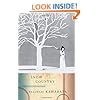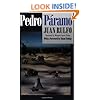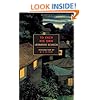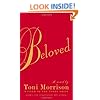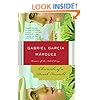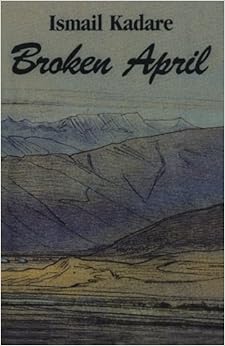
Broken April
and over one million other books are available for Amazon Kindle. Learn more


Flip to back
Flip to front

Broken April Paperback – June 16, 1998

$13.46
FREE Shipping on orders over $35.
In Stock.
Ships from and sold by Amazon.com.
Gift-wrap available.
NO_CONTENT_IN_FEATURE
Start reading Broken April on your Kindle in under a minute.
Don't have a Kindle? Get your Kindle here, or download a FREE Kindle Reading App.
Don't have a Kindle? Get your Kindle here, or download a FREE Kindle Reading App.
Product Details
Would you like to update product info or give feedback on images?.
|
Editorial Reviews
From Publishers Weekly
Honeymooners in the mountains of Albania and a young man playing out a blood feud set the stage for this mesmerizing tale. Ordered by his father to obey the mandates of Kanun , or mountain law, Gjorg Berisha kills a a man to avenge the murder of his brother. According to the Kanun , however, it is the right and duty of the slain man's family to murder Gjorg after the bessa , or 30-day truce, expires in mid-April. Gjorg plans to spend the first, "white" part of that month as a wanderer, but first must walk to a distant village to pay a "blood tax" to the region's ruling family. On the way, he catches the eye of Diana Vorpsis, traveling in the mountains by carriage with her new husband, Bessian. Something about Gjorg, his role in the drama she hears about and his probable death captures Diana's soul. She becomes increasingly withdrawn as she longs to find the young man she has earlier glimpsed, while Gjorg is equally determined to find her and learn of her life before his April turns "black." Thanks to simple prose and engaging details, the Albanian Kadare ( Chronicles in Stone ) makes this story of harsh yet romantic mountain life ring magically true.
Copyright 1990 Reed Business Information, Inc. --This text refers to an out of print or unavailable edition of this title.
Copyright 1990 Reed Business Information, Inc. --This text refers to an out of print or unavailable edition of this title.
Review
Written with masterly simplicity in a bardic style....With Broken April, Mr. Kadare comes to the forefront as a major international novelist. (The New York Times )
…Powerful, old-fashioned fiction almost Dostoevskian in its dark vision. (Kirkus Reviews )
One of contemporary fiction’s greatest prose lyricists. (Philadelphia Inquirer )
In Broken April, Kadare achieves a precise and delicate balance of wonder and horror, simplicity and irony....[Kadare] is an accomplished storyteller with a keen sense of literary history. (Christian Science Monitor )
Kadare's voice is a voice unlike any other in contemporary fiction. The Nobel can't come a moment too soon. (Kirkus Reviews )
A major international novelist. (Herbert Mitgang The New York Times )
One of the most compelling novelists now writing in any language. (The Wall Street Journal )
Ismail Kadare is a writer who maps a whole culture—its history, its passion, its folklore, its politics, its disasters. He is a universal writer in a tradition of storytelling that goes back to Homer. (Professor John Carey, Committee Chair, Man Booker International Prize 2005 )
Ismail Kadare's fiction has been compared with that of Gabriel Garcia Marquez. Certainly he induces that same ironic double-take in his readers, by means of the child's magical view of life that is larger than most adults realize (Leonie Caldecott The New York Times )
Writing like this is hard to stop quoting, it is musical not only in rhythms, but in its most elemental perceptions. (Nation )
Albania's most valuable literary export: the novels of Ismail Kadare. (Ken Kalfus Village Voice Literary Supplement )
Albania's Kadare is probably the premier writer of fiction to have emerged from the Balkan countries since Bosnian Nobel-winning novelist Ivo Andric. (Kirkus Reviews )
A great writer. (Booklist )
Kadare's prose glimmers with the magic realism of Gabriel Garcia Marquez. (Los Angeles Times )
…Powerful, old-fashioned fiction almost Dostoevskian in its dark vision. (Kirkus Reviews )
One of contemporary fiction’s greatest prose lyricists. (Philadelphia Inquirer )
In Broken April, Kadare achieves a precise and delicate balance of wonder and horror, simplicity and irony....[Kadare] is an accomplished storyteller with a keen sense of literary history. (Christian Science Monitor )
Kadare's voice is a voice unlike any other in contemporary fiction. The Nobel can't come a moment too soon. (Kirkus Reviews )
A major international novelist. (Herbert Mitgang The New York Times )
One of the most compelling novelists now writing in any language. (The Wall Street Journal )
Ismail Kadare is a writer who maps a whole culture—its history, its passion, its folklore, its politics, its disasters. He is a universal writer in a tradition of storytelling that goes back to Homer. (Professor John Carey, Committee Chair, Man Booker International Prize 2005 )
Ismail Kadare's fiction has been compared with that of Gabriel Garcia Marquez. Certainly he induces that same ironic double-take in his readers, by means of the child's magical view of life that is larger than most adults realize (Leonie Caldecott The New York Times )
Writing like this is hard to stop quoting, it is musical not only in rhythms, but in its most elemental perceptions. (Nation )
Albania's most valuable literary export: the novels of Ismail Kadare. (Ken Kalfus Village Voice Literary Supplement )
Albania's Kadare is probably the premier writer of fiction to have emerged from the Balkan countries since Bosnian Nobel-winning novelist Ivo Andric. (Kirkus Reviews )
A great writer. (Booklist )
Kadare's prose glimmers with the magic realism of Gabriel Garcia Marquez. (Los Angeles Times )
More About the Author
Discover books, learn about writers, read author blogs, and more.
Customer Reviews
Most Helpful Customer Reviews
34 of 36 people found the following review helpful
By
Bob Newman
VINE VOICE on December 21, 1999
Format: Paperback
Comment
Sending feedback...
Blood feuds have existed in many parts of the world throughout history. The USA, with its Hatfields and McCoys, is no stranger to the custom either. The practice seems to run most deeply in remote, mountainous areas where tribal societies cannot provide a universal system of justice to cover everyone. The code of the blood feud develops to handle murder cases. Nowhere (that I ever heard of) did the system evolve into such an intricate traditional code of laws as in the mountainous highlands of Albania. There, the Kanun, or Law of Lek Dukagjini spread throughout the lawless region now lying in northern Albania, Kosovo, and Montenegro, a region that largely maintained its own identity and customs throughout the centuries-long period of Turkish rule, to emerge in 20th century Europe with the blood feud still flourishing.
Kadare, Albania's premier writer, has written a vivid, dark novel that not only captures the details of highland Albanian life in the 1920s, but also shows the ultimate tragedy for a society that allows murder to follow murder, inexorably and unchallenged. A couple from the more urbanized, less-traditional lowlands go for their honeymoon into the highlands, riding in a horse-drawn carriage--a great luxury for the highlanders. The man, a writer, tends to romanticize the blood-soaked traditions of his country's remote regions. At the same time, Gjorg, a young highlander, who has killed a man in revenge for his brother, is given a month's truce before he in turn will become a target. He can expect a bullet at any moment after April 17, hence his April is broken into safe and dangerous parts. His fate intersects with those of the literate travellers and the book comes to its inevitable ending.Read more ›
Kadare, Albania's premier writer, has written a vivid, dark novel that not only captures the details of highland Albanian life in the 1920s, but also shows the ultimate tragedy for a society that allows murder to follow murder, inexorably and unchallenged. A couple from the more urbanized, less-traditional lowlands go for their honeymoon into the highlands, riding in a horse-drawn carriage--a great luxury for the highlanders. The man, a writer, tends to romanticize the blood-soaked traditions of his country's remote regions. At the same time, Gjorg, a young highlander, who has killed a man in revenge for his brother, is given a month's truce before he in turn will become a target. He can expect a bullet at any moment after April 17, hence his April is broken into safe and dangerous parts. His fate intersects with those of the literate travellers and the book comes to its inevitable ending.Read more ›
Thank you for your feedback.
If this review is inappropriate, please let us know.
Sorry, we failed to record your vote. Please try again
21 of 22 people found the following review helpful
By
"javits2000"
on May 24, 2000
Format: Paperback
Comment
Sending feedback...
How can a people live without an organized government? The northern Albanians seem to have found an answer, but it's not necessarily one we'd want to emulate. Throughout years of cursory rule by the Ottomans, King Zog, and Hoxha's Communists, the highlanders have observed only the law of their ancestors: the Kanun of Lek Dukagjinit (an excellent translation of this is available on Amazon). At the center of this law stand two concepts: hospitality and honor. Both are protected by a system of revenge killings. A killing demanded by honor, however, demands a revenge killing in return, and the feuds spiral out of control until whole families have been eliminated.
It all sounds very romantic in the abstract, but Kadare resists the temptation to exploit this quality. His novel is based on the contrast between a young man obliged by the Kanun to kill another man, and a young married couple from Tirana, urban intellectuals who have come to the north for their honeymoon and to study the blood feuds. The tension between their two points of view (the northerner who feels trapped within the Kanun, and the southerners who see it as a marvelous bit of local color) drives this novel.
Kadare is a wonderful writer, and this is one of his finest efforts. It's also a very dark story, and its concerns can seem a bit obscure to the non-Albanian reader. Ultimately, though, this is probably the best novel I've ever read about a culture wholly alien to my own.
It all sounds very romantic in the abstract, but Kadare resists the temptation to exploit this quality. His novel is based on the contrast between a young man obliged by the Kanun to kill another man, and a young married couple from Tirana, urban intellectuals who have come to the north for their honeymoon and to study the blood feuds. The tension between their two points of view (the northerner who feels trapped within the Kanun, and the southerners who see it as a marvelous bit of local color) drives this novel.
Kadare is a wonderful writer, and this is one of his finest efforts. It's also a very dark story, and its concerns can seem a bit obscure to the non-Albanian reader. Ultimately, though, this is probably the best novel I've ever read about a culture wholly alien to my own.
Thank you for your feedback.
If this review is inappropriate, please let us know.
Sorry, we failed to record your vote. Please try again
12 of 12 people found the following review helpful
By
William Krischke
VINE VOICE on February 24, 2001
Format: Paperback
Comment
Sending feedback...
Kadare is a writer of subtlety and irony, capable of powerfully saying what he thinks without ever actually saying what he thinks. I guess you must learn to do this when you grow up in a strict communist dictatorship. The first and main character of the book, Gjorg, steps into the ages-old tradition of bloodfeud, and begins the ending of his own life. Kadare masterfully tells this from Gjorg's viewpoint in a dark, terse but poetic style that feels as desperate as his character. Then the irony kicks in, as he introduces a writer and his new wife, who are from the city, who is fascinated with Northern Albanian culture. Bessian is wrapped up in the terrible romance of the blood feud, and a conscious reader must identify him/herself in this curious character, wanting to watch, both fascinated and horrified, as people destroy each other for the sake of tradition. And the to turn the screw one notch further, we briefly meet the Blood Mark, the government officer responsible for tracking the blood killings and receiving the blood tax. A look inside his almost-normal mind is eerily frightening, as death becomes life and life becomes death. I'm afraid I'm too un-Albanian in thought-patterns, however, to grasp the climactic motion of the novel. I don't want to give away the end of the novel, but I must say it seems to build and build towards a particular event... and then just narrowly miss that event. It is difficult to identify the climax of the novel, and difficult to be satisfied with the progression. Maybe this is simply because my mind is quite Western, and my sense of things is different. But I'm not totally unexperienced at reading non-Western works...
Anyway. A wonderful, if dark and intense, novel. An education, as well.
Anyway. A wonderful, if dark and intense, novel. An education, as well.
Thank you for your feedback.
If this review is inappropriate, please let us know.
Sorry, we failed to record your vote. Please try again
8 of 8 people found the following review helpful
By
Ryan Mcgonigle
on February 19, 2003
Format: Paperback
Comment
Sending feedback...
I started reading and finished this book in one day--I've owned it for a few years but never read it, admittedly. But I picked it up yesterday and couldn't put it down.
Admittedly, I was a bit shocked that this book made it to the printing presses (assuming as I am that Kadare lived in Hoxha's Albania in 1982 when this book was written). Hohxa was a Tosk and tried to stamp out all vestiges of the Kanun and the gjakmarrje (blood feud). But, in a special way, this book transcends the customary law and the Northern Albanian Alps: it tells a time-honored tale of honor, obedience to one's father, and hospitality.
The metaphors used by Kadare to describe the honored role of the guest in the Albanian home are true to this day. His depiction of Albanian mannerisms, knowledge of the Kanun of Leke, and interplay of the main 3 sets of characters make for a worthwhile read.
Admittedly, I was a bit shocked that this book made it to the printing presses (assuming as I am that Kadare lived in Hoxha's Albania in 1982 when this book was written). Hohxa was a Tosk and tried to stamp out all vestiges of the Kanun and the gjakmarrje (blood feud). But, in a special way, this book transcends the customary law and the Northern Albanian Alps: it tells a time-honored tale of honor, obedience to one's father, and hospitality.
The metaphors used by Kadare to describe the honored role of the guest in the Albanian home are true to this day. His depiction of Albanian mannerisms, knowledge of the Kanun of Leke, and interplay of the main 3 sets of characters make for a worthwhile read.
Thank you for your feedback.
If this review is inappropriate, please let us know.
Sorry, we failed to record your vote. Please try again
